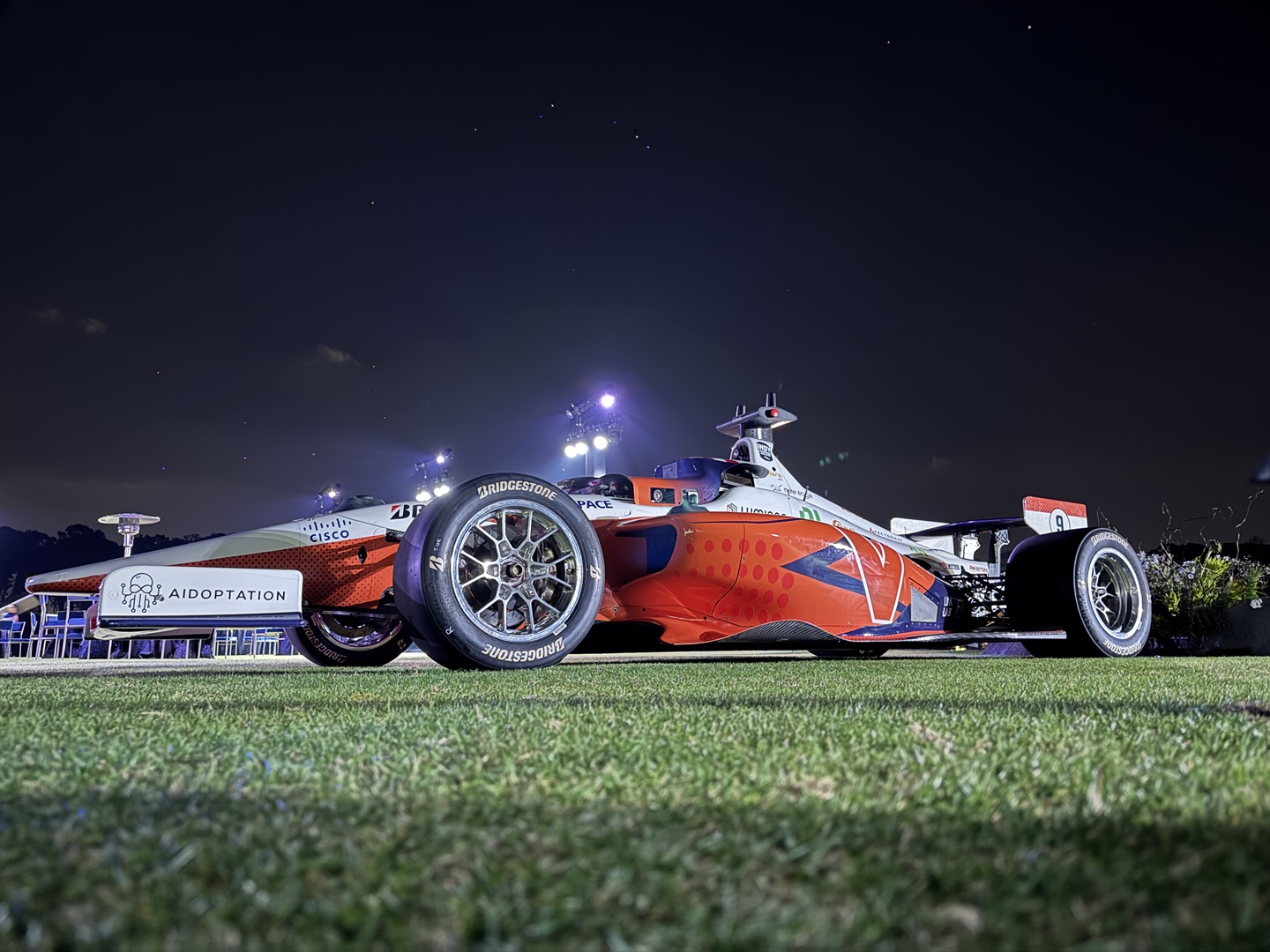Madhur Behl, the UVA School of Engineering and Applied Science associate professor who leads Cavalier Autonomous Racing, presented in March at the invitation-only Amazon MARS 2025, hosted by Jeff Bezos.
Behl opened the day with a keynote address for the event, which explores breakthroughs in machine learning and AI, automation, robotics and space.
Later that day, Behl had his students provide a live demonstration of UVA’s full-scale robot racecar on the former space shuttle landing strip at Florida’s Kennedy Space Center, where MARS was held this year.
Attendees, including Bezos, gathered on the shuttle runway for the nighttime demonstration. CAVCAR was outfitted with LED lights that made it visible to the spectators. Behl said the look was reminiscent of a vehicle from the movie “Tron.”
Indy Autonomous Challenge, the global autonomous racing competition in which UVA participates, provided support.
”We sent it. The car, of course, had no lights, no driver, because our autonomous race car doesn’t require vision to operate,” Behl said of the demo. “A human driver wouldn’t be able to get safety clearance to do what we did.”

MARS convenes some of the world’s most influential minds shaping the future — Nobel laureates, astronauts, pioneering roboticists, visionary investors, and leaders across academia, startups, and industry.
Behl is a professor in UVA Engineering’s Department of Computer Science and a member of UVA’s Link Lab.
Behl’s talk was titled, “Bringing AI Up to Speed,” which featured his research on high-speed autonomous racing and the emerging frontier of physical AI.
As part of the talk, he traced his academic path: from co-founding the f1tenth small-scale autonomous racing platform, to helping pioneer the use of video games in autonomous racing research, to leading UVA’s full-scale, real-world racing.
Behl also shared “the relentless journey and perseverance of the student team,” which he founded and has led since 2020. The team experienced setbacks enroute to last year’s record-breaking victory, all in the interest of advancing the safety of autonomous vehicles on the roads.
"Autonomous racing forces us to confront the hardest edge cases of autonomy,” Behl said after the event. “It’s a proving ground not just for the technology, but for how we think about embodied intelligence, and safe AI in the physical world.”
